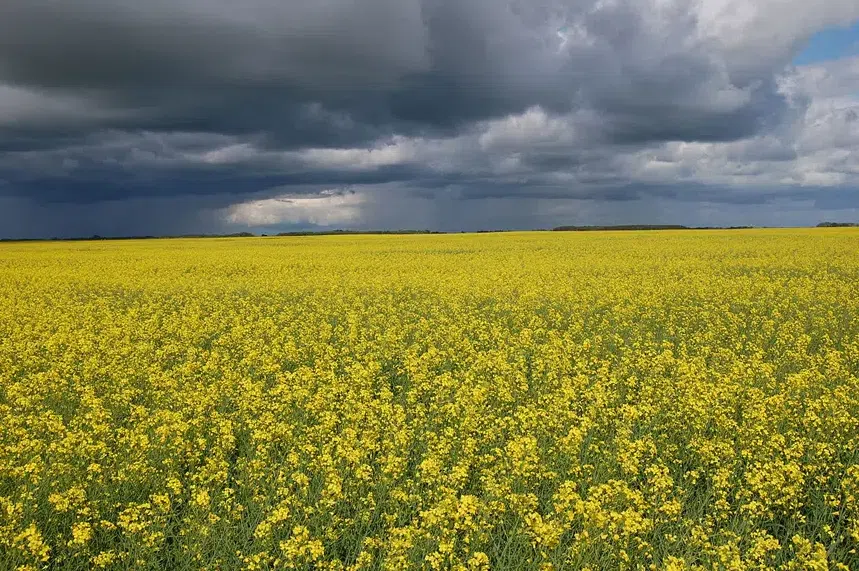The Asia-Pacific Economic Cooperation (APEC) forum begins at the end of this week in South Korea and with Prime Minister Mark Carney scheduled to meet with Chinese President Xi Jinping, there’s hope it could mean the end of trade disputes.
Agricultural Producers Association of Saskatchewan (APAS) Executive Director Dion McGrath said the province’s producers are all looking for the, “removal of trade barriers and ending of the tariffs that China has imposed on peas, canola, and pork products.”
Read more:
- Saskatchewan farmer calls for open markets face of Chinese canola tariffs
- ‘A major effect’ Bunge Canada CEO talks Chinese tariffs and canola
- Tariffs & Saskatchewan: What do tariffs mean for you?
Those include the 100-per-cent tariffs on Canadian canola oil and meal, along with other products, imposed by China back in March. It was widely seen as a response to Canada’s 100-per-cent tariff on Chinese electric vehicles.
There’s also the 75.8-per-cent tariff that China imposed on Canadian canola seed months later in August.
According to McGrath, these tariffs have disrupted the free movement of agricultural products since they were imposed, costing farmers roughly $850 million this crop year for just canola and peas.
It’s a cost that’s impacted, “every farm and ranch family in the province,” he said, with prices for the products softening since Chinese tariffs came into effect.
In September, APAS president Bill Prybylski said canola prices are about half of what they were just a couple of years ago. While that drop in price isn’t entirely due to tariffs, according to Prybylski, a producer with 2,000 acres of canola could end up with $500,000 less because of tariffs.
For pea producers, who are also struggling with Chinese tariffs, Prybylski said they’re seeing prices nearly a third of what they’d been a couple of years ago.
Even though the federal government announced supports for Canadian canola producers in September, Prybylski said what ultimately needs to happen is for the “tariffs to go away.”
APEC provides Carney with an opportunity to bring back the free flow of goods between Canada and China.
McGrath said while at APEC, Carney also has a chance to diversify Canada’s trading partners across the Asia-Pacific region, strengthening agreements with other countries so that agricultural products can enter other markets.
China is the largest export market for Canadian canola meal and oil.
Expanding the country’s partnerships would help “create enhanced security and opportunity for Saskatchewan farmers,” according to McGrath, because Canada wouldn’t have to rely so heavily on the stability of its relationships with major trading partners.
Read more:











